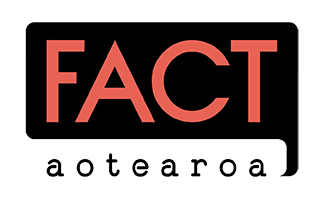
FALSE CLAIM: “They” manipulate the count
We count votes by hand in this country, and we count them carefully… but it seems like not everybody knows that. And it’s normal for the final result to change after election night, but not everyone gets that either.
In New Zealand all votes are counted by hand. The results are put into the election management system for publication, but importantly, the polling booth and electorate totals are published separately so anyone can check. The preliminary count on the night is only a first pass and doesn’t include the special votes, which explains why it can be different from the final official count.
Some people claim that our votes aren’t counted correctly, or audited, or that results are changed after counting, or whatever. Nefarious activity in the published numbers is often suggested.
- It’s a hand count
- It gets checked
- Candidates appoint scrutineers to monitor
- Candidates can ask for a recount
- The totals from each booth and electorate are published separately
- Rechecking and special votes coming explains why the final count is sometimes different
Counting votes in New Zealand general elections is a process with several steps that can take days or weeks to complete, because every piece of paper is reviewed.
In New Zealand votes are counted by hand. New Zealand is not like other countries (eg the US) where papers are processed by machines, but because so much misinformation comes from those other countries, sometimes people get confused. Our count is done by regular people working for the Electoral Commission. Candidates can (and do) appoint scrutineers to monitor the counting process on their behalf.
The result that gets announced on election night is only the preliminary count. It includes advance votes and votes cast on the day. The advance votes are counted at electorate headquarters, and votes on the day are counted at the polling station and reported back to electorate headquarters.
Preliminary counts aren’t official! They don’t include “special votes.” You make a special vote when you vote away from a voting place or aren’t on the printed roll at a voting place. This could happen if you’re travelling or outside your electorate on election day. (When the official count is done, special votes are rejected if you aren’t on the roll at all.)
Because of this, sometimes the preliminary count is different from the final official count.
The preliminary count doesn’t include special votes and some mistakes might get caught and corrected in the recheck process. This isn’t a sign of anything dodgy happening. It’s what you’d expect when we have a manual count and we need a compromise between the pressure to get a useful result out as fast as possible and to have a carefully checked, 100% reliable outcome from the manual process. Sometimes the preliminary count for a candidate can actually fall while the count is taking place, because the officials check for errors as they go and if they find one they update accordingly – if someone typos a bigger number that makes the result go down when the error is caught.
The official count takes longer because it includes rechecking of votes cast and cross-checking with electoral roll to detect double voting. If there is a referendum as part of the election counting the referendum votes takes more work again. The official count is the legally binding result, after all the ballots have been reviewed and candidates and parties have had the opportunity to challenge and ask for a recount. Justices of the peace sign off the certificate of results for each electorate.
The counts are recorded, then entered into the election management system (EMS) to produce totals for publication. It’s important to note that the official count is not what the EMS produces. The official count is the manual record that’s entered into the EMS. The EMS doesn’t determine the result, it only prepares the data for publishing.
When it comes down to it, people who claim there’s something fishy don’t actually have any evidence for this. They point to things that aren’t suspicious, don’t explain them and hope you’ll imagine something bad.
- The Electoral Commission’s explanation https://elections.nz/democracy-in-nz/about-elections/how-are-general-election-votes-counted/
- Electoral Act rules for preliminary count https://legislation.govt.nz/act/public/1993/0087/latest/whole.html#DLM309854
- Electoral Act rules for official count https://legislation.govt.nz/act/public/1993/0087/latest/whole.html#DLM309884
Letters & resources



Prebunking election misinformation













